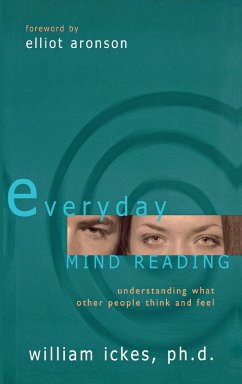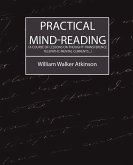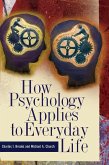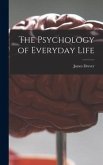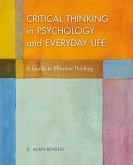Are women really better than men at reading other people's minds? Are longer-married couples better than newlyweds at anticipating their partners' thoughts and feelings? Do we all possess a dormant "sixth sense" that, if fully utilized, could allow us to intuit with great accuracy what other people are thinking? Internationally recognized psychologist William Ickes answers these and many other questions in this fascinating examination of the mind's potential for "everyday mind reading." After developing an innovative video-based procedure for measuring the accuracy of people's empathic inferences, Ickes and his colleagues used this procedure to study different aspects of everyday mind reading in research conducted over the past 15 years. Among the issues they have explored are the validity of the belief in women's intuition, how long it takes strangers to "get to know" each other, why friendships promote mutual understanding, why twins tend to have similar thoughts and feelings, how people's frames of reference can both help and hinder their communication, and the neurological basis for our ability to empathize with others.Ickes also extends his inquiry to broader social questions. For example, are there ways of detecting when someone has a hidden agenda? Are there circumstances in which accurately "reading" an intimate partner's thoughts and feelings actually harms, rather than helps, the relationship? How can the results of the research on everyday mind reading be applied to improve parenting skills, the effectiveness of counseling, even sales and marketing? Finally, what does the scientific evidence say about the widely debated notion of ESP?
Hinweis: Dieser Artikel kann nur an eine deutsche Lieferadresse ausgeliefert werden.
Hinweis: Dieser Artikel kann nur an eine deutsche Lieferadresse ausgeliefert werden.

